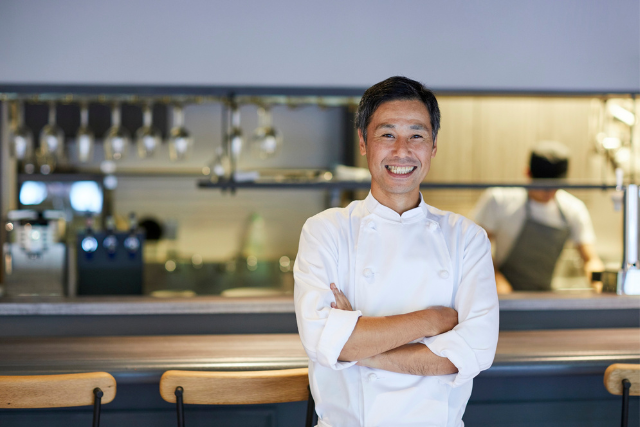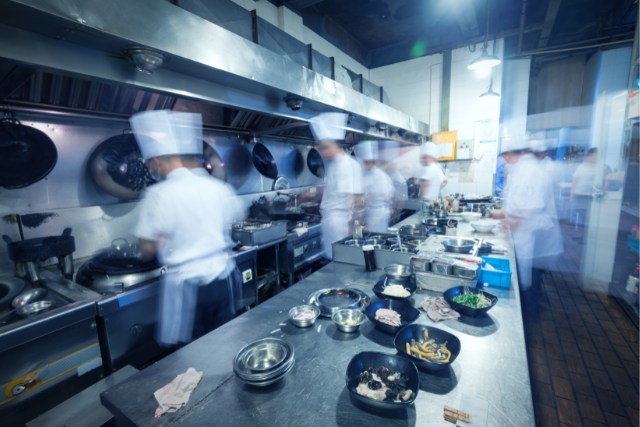
When people hear “culinary arts degree,” the first thing that comes to mind is usually cooking. And yes, learning how to slice, sauté, and season is part of it. But a culinary arts degree covers much more than time spent at the stove. It blends culture, science, creativity, business, and how food connects people.
At CCA Manila, students are also introduced to the broader world of food, from culinary heritage to entrepreneurship. Some want to run a professional kitchen, while others are drawn to food systems, nutrition, or hospitality. This kind of education opens up all sorts of paths.
Here’s a closer look at why it’s more than just learning to cook.
Food as Culture
Food is deeply connected to history, tradition, and identity. That’s why many culinary arts programs include subjects like food anthropology, global cuisines, and culinary history. These courses give students a clearer view of how ingredients and techniques move, evolve, and take on meaning across cultures.
One class might examine how French sauces shaped modern Western cooking, while another might examine how colonization influenced spice routes and the development of national dishes. For example, the Fundamentals in Filipino Cuisine course of CCA Manila spotlights local ingredients, culinary heritage, and those who keep those traditions alive.
Graduates walk away with a deeper understanding of what food represents, why it matters, and how to cook with purpose and respect.
Professional Kitchen Structure and Teamwork

A home cook can create a great meal solo, but a professional kitchen runs on coordination and timing. Culinary arts programs use the brigade system to teach kitchen roles, communication, and hierarchy. A standout dish depends on collaboration and flow, especially when tickets are flying in during dinner service.
Students learn to move with purpose, stay sharp, and keep pace in a high-pressure space. This hands-on experience is essential in the food industry and sharpens leadership and teamwork skills that extend beyond the kitchen.
Business, Management, and Entrepreneurship
Being a great cook is one thing—turning that skill into a successful business is something else entirely. With that, most culinary arts programs include training in the food business. Students dive into restaurant management, food cost analysis, menu design, marketing, inventory systems, and the ins and outs of licensing and health regulations. It’s a side of the culinary world that’s just as important as what happens on the plate.
CCA Manila takes this seriously, offering structured programs for those who want to go beyond the kitchen. The Bachelor of Science in Entrepreneurial Management Major in Culinary Arts is designed for chefs or culinarians who plan to open their catering company or food concept. It blends culinary training with business development, helping students build real strategies they can take into the field.
For those who already have a concept and want to fine-tune it, the Food Entrepreneurship Masterclass is a focused 10-week virtual program. It’s designed for aspiring food entrepreneurs who wish to strengthen their ideas, address potential pitfalls, and develop a more foolproof business plan.
Through hands-on projects like mock restaurant concepts, fully costed menus, and business proposals, students learn what it takes to make their vision work—not just creatively but also financially and operationally.
Creativity and Innovation
Culinary arts is one of the most creative fields. It blends tradition and innovation, structure, and flair. In school, students aren’t just taught classic recipes; they’re encouraged to experiment, remix flavors, and put their own spin on techniques.
The presentation becomes a key element as well. Plating tells a story, sets a mood, and shapes the dining experience. Culinary programs often have modules on food styling and visual appeal, which is especially important in today’s social-media-driven food scene.
This creative training is invaluable for future chefs, food stylists, product developers, and anyone who wants to leave a personal mark on their culinary creations.
Nutrition and Special Diets
Another area that takes a front seat in culinary education is nutrition. Students learn the fundamentals of healthy eating, dietary restrictions, and how to create balanced menus in a Bachelor in Culinary Arts program. From veganism to gluten intolerance to diabetic-friendly options, today’s culinary professionals need to understand how food affects the body and how to adapt dishes without sacrificing flavor.
It’s essential for anyone interested in wellness, hospital food service, or working with health-conscious clientele. It also opens up job opportunities beyond restaurants, such as corporate wellness programs or private chef roles for clients with medical needs.
Exposure to Global Cuisines

One of the biggest advantages of a culinary arts program is exposure. Students don’t just stick to one style—they’re encouraged to explore everything from Japanese knife skills to Middle Eastern spice blends to Latin American grilling techniques.
Many schools also offer international exchanges, guest chefs from around the world, or internships in global kitchens. The hands-on experience gives students a broader perspective and a deeper respect for the culinary world’s diversity.
Discipline and Personal Growth
Make no mistake—culinary school is fun but tough. Long hours on your feet, strict instructors, and high-pressure evaluations are all part of the value. It builds grit, stamina, focus, and resilience.
You learn how to accept critique, recover from mistakes, and keep going when things get hot. That kind of discipline carries over into other parts of life and work. Employers value the ability to stay calm under pressure, push through discomfort, and commit to improvement.
Ready to Start Your Culinary Journey?
Enrolling in a culinary program means you’re ready to take your passion for food seriously—and CCA Manila is here to guide you through that next step. Our programs are built to help you gain the skills, confidence, and real-world experience needed to grow in today’s dynamic food industry.
You’ll train in professional kitchens, work with experienced mentors, and learn about everything from culinary techniques to the business side of food. This well-rounded approach prepares you for the fast-paced, ever-evolving world of food and hospitality.
This goes far beyond learning how to cook. It’s about shaping a future built around creativity, discipline, and opportunity. Enroll now and take your first real step toward a rewarding career!
